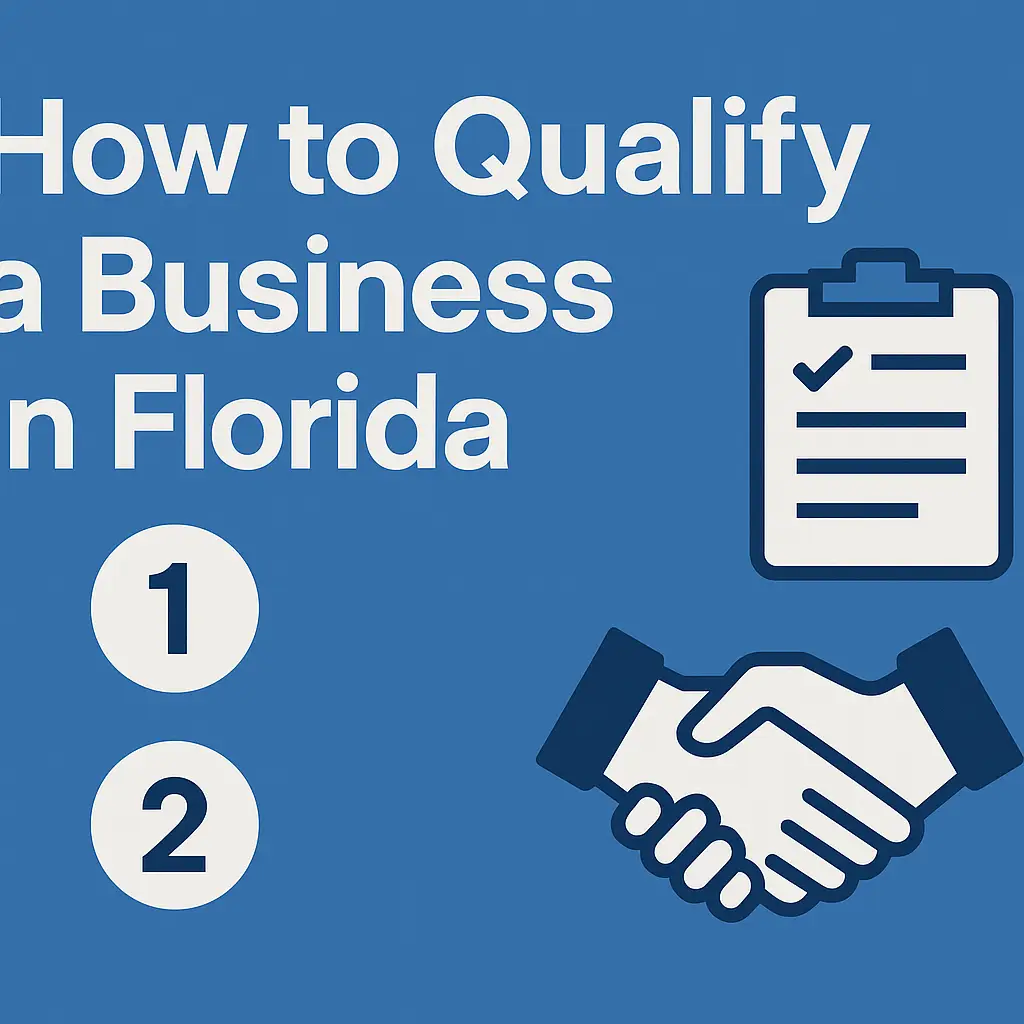If you’re a licensed contractor in Florida planning to operate through a business entity — or help a company get licensed under your certification — it’s essential to follow the correct legal steps to qualify that business.
This guide provides a clear two-step overview for properly qualifying a company in Florida:
✅ Step 1: File the Correct Application with the DBPR
The first step to qualifying a business in Florida is to submit the appropriate application to the Florida Department of Business and Professional Regulation (DBPR). The form you use depends on your trade license and situation:
Common Qualification Forms:
- CILB Form 6-A – Used to initially qualify a construction business entity (e.g., LLC, corporation) under a certified license.
- CILB Form 9 – Used by licensed contractors to qualify an additional business under the same license and classification.
- CILB Form 8 – Used to designate a Financially Responsible Officer (FRO) if the qualifier will not handle the company’s finances.
- ECLB Form 4 – Used by certified electrical contractors to qualify, transfer, or reactivate business associations.
📝 The form must be submitted along with supporting documentation, including a credit report, proof of insurance, and business structure disclosures. In some cases, DBPR board review and approval may be required.
For more detail on which form applies to your trade and structure, see our companion article: Florida Contractor Licensing Guide: Understanding CILB and ECLB Qualification Forms.
🤝 Step 2: Create a Tailored Qualification Agreement
Once the state approves your application, you still need to formalize your relationship with the company you’re qualifying. This means preparing a custom Qualification Agreement that clearly defines the rights, responsibilities, and protections between you (the qualifier) and the business.
Why a Qualification Agreement Matters:
- Defines supervision duties – Outlines the qualifier’s role in overseeing construction or field operations.
- Allocates liability – Clarifies who is responsible for financial obligations, workers, and compliance.
- Protects your license – Helps shield the qualifier from being liable for activities they don’t control.
- Customizable terms – Can include compensation structure, termination rights, indemnification, and more.
⚖️ This agreement is especially critical when the qualifier is not an owner of the business, or is acting as a W-2 employee or external qualifier.
At Andrew Douglas, P.A., we help contractors draft and negotiate these agreements to protect your license and professional standing.
Questions About Qualifying a Business?
We assist both licensed contractors and businesses looking to hire a qualifier with:
- Selecting and completing the right DBPR forms
- Structuring legal agreements between qualifier and company
- Understanding compliance risks and license protections
📞 Call 954.474.4420 or 📧 email andrew@douglasfirm.com for tailored legal guidance on qualifying a business in Florida.

